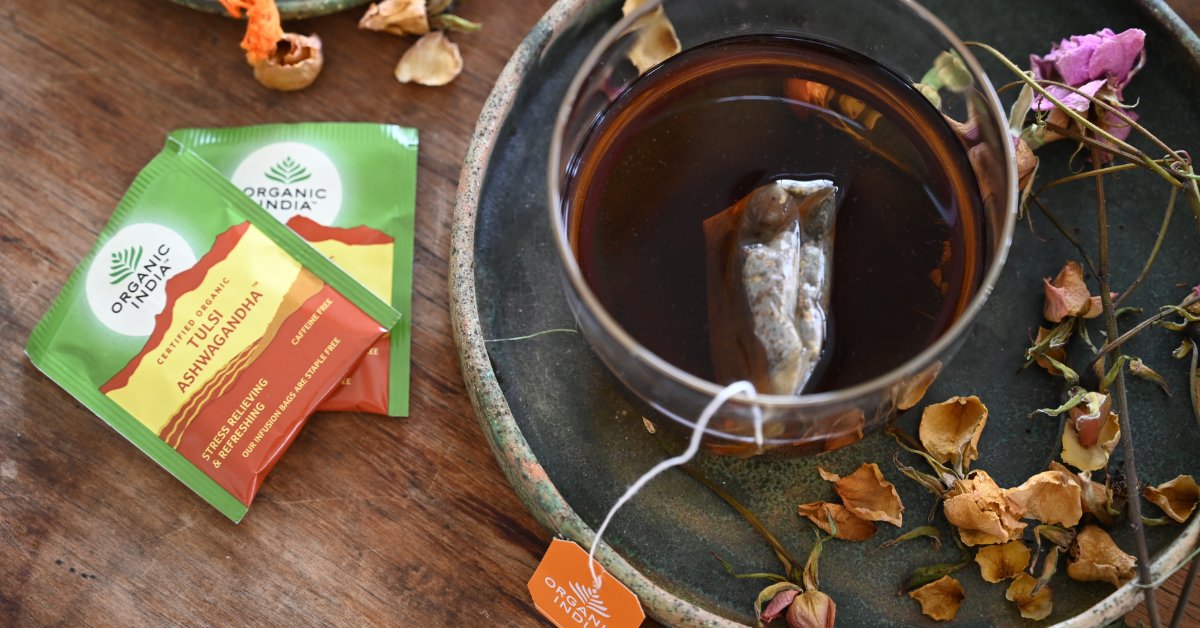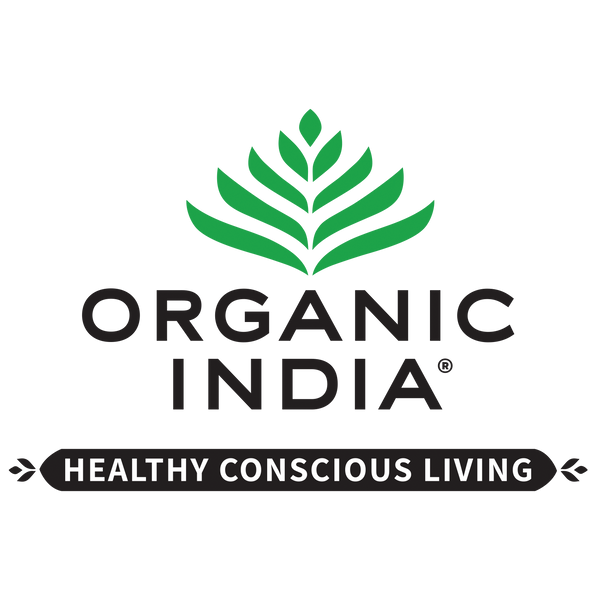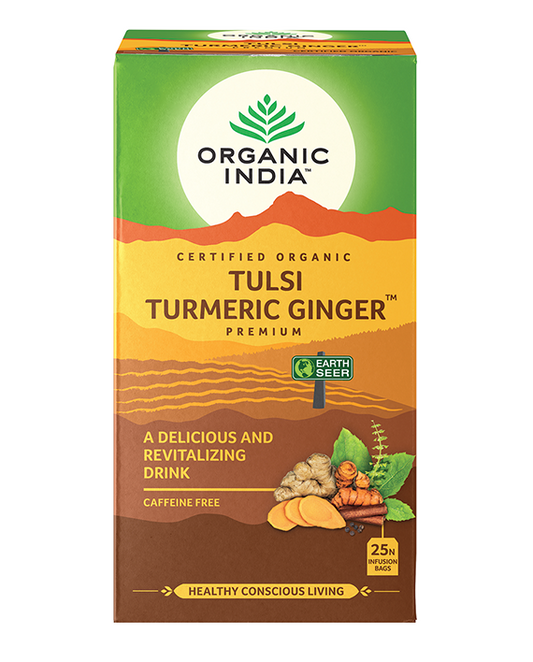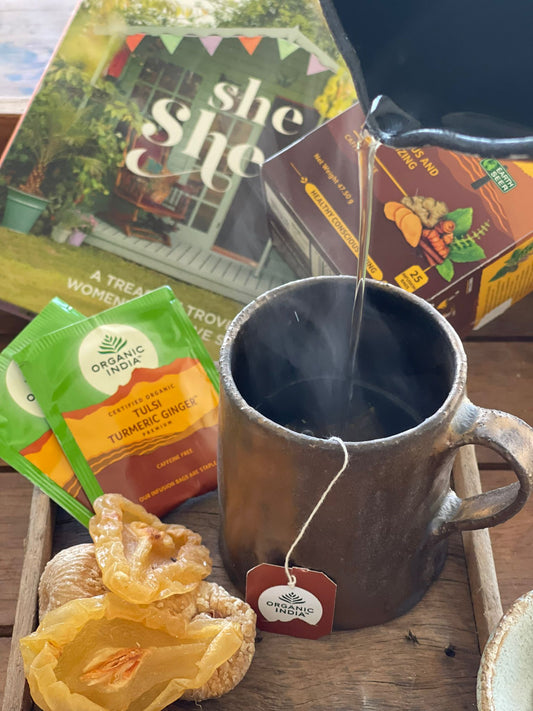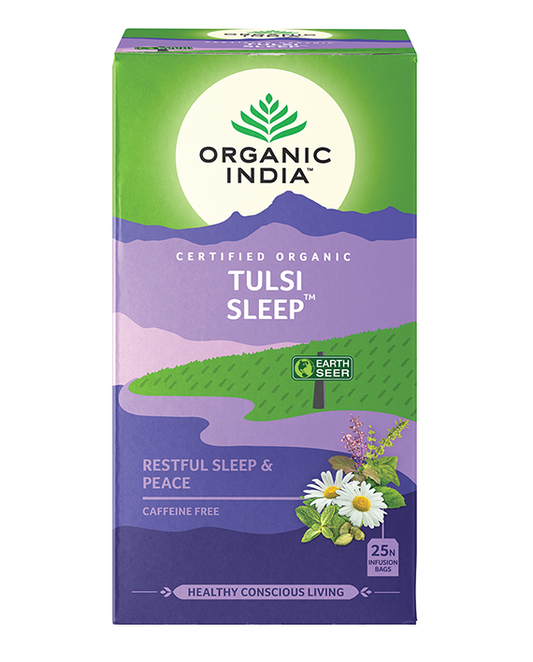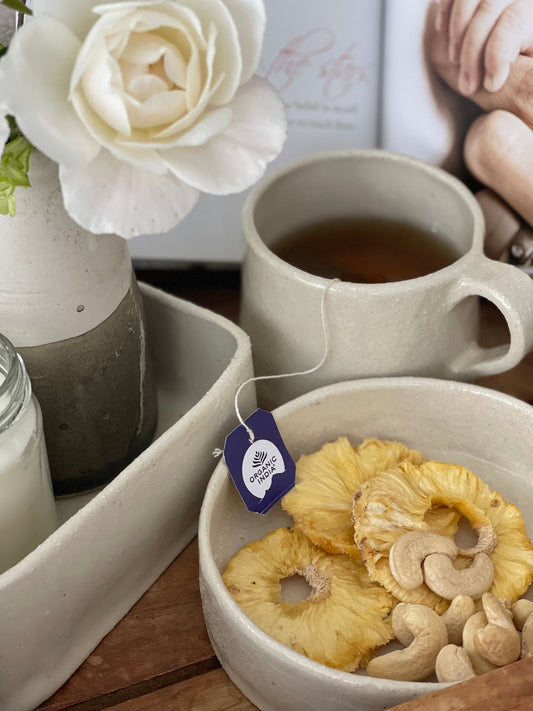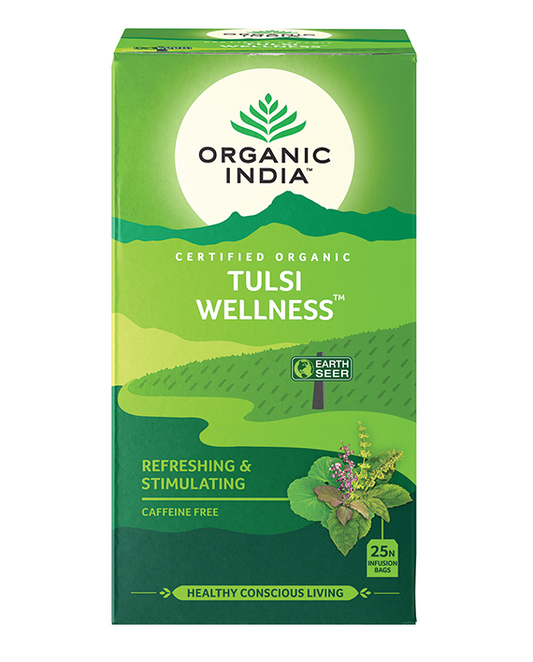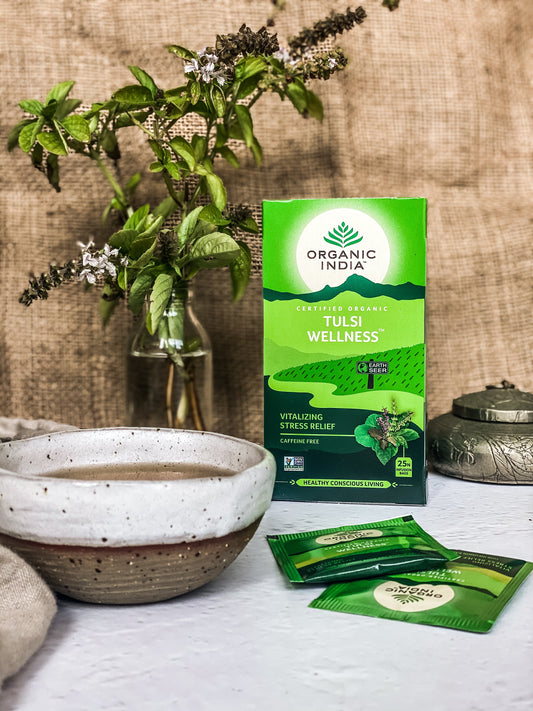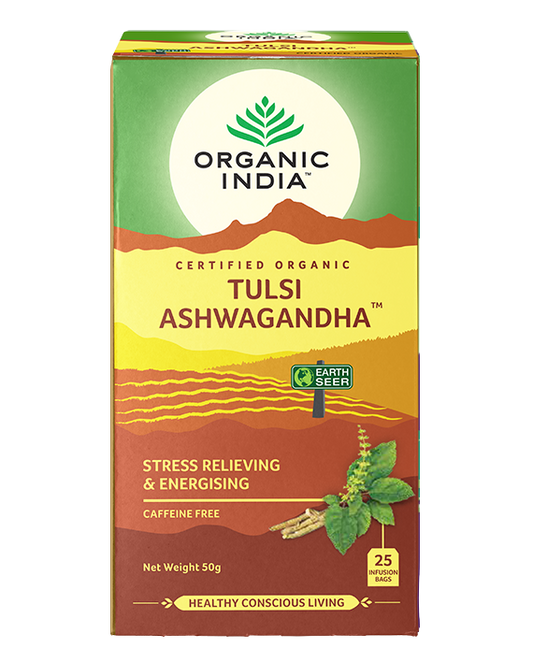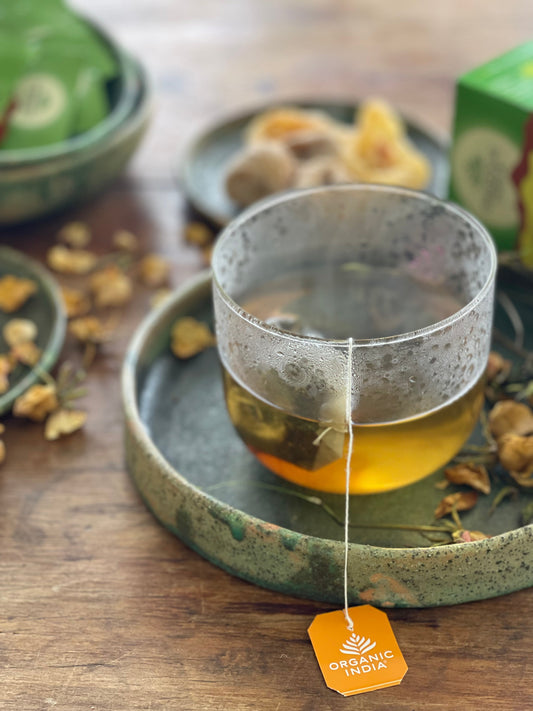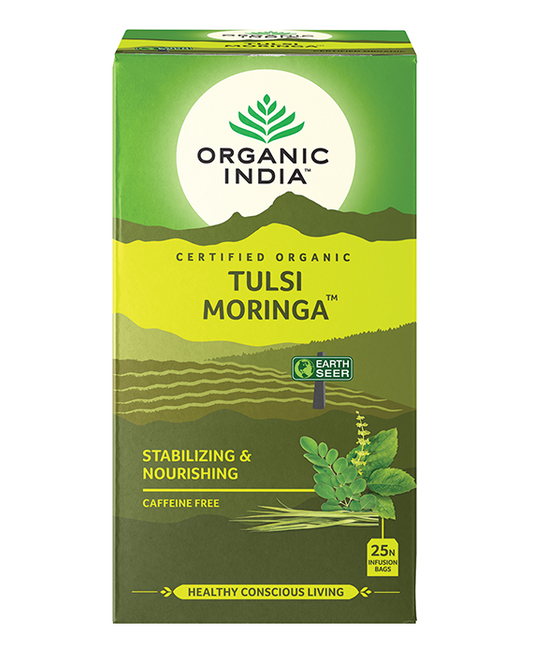Sustainability can be defined as the ability to maintain healthy environmental, social and economic systems in balance, indefinitely, on a global and local scale.
ORGANIC INDIA’s mission is to create a sustainable global environment. As an award-winning ethical enterprise, sustainable practices are at the heart of their business model.
What are Environmentally Sustainable Business Practices?
Environmentally sustainable practices are those that protect the natural environment such as:
- Minimising the use of energy, water and natural resources
- Waste management
- Use of recycled products
- Minimising and mitigating carbon emissions
- Habitat and environment protection.
Sustainable Business Practices at ORGANIC INDIA
ORGANIC INDIA’s commitment to sustainable business practices has been recognised with their BCORP status and their LEED platinum certified factory. Their commitment flows throughout all sectors of the business, from the engagement of farmers to their sustainable factory, product packaging, and beyond.
- Award-winning BCORP
What are they, and how do they benefit the environment?
Certified B Corporations are businesses that meet the highest standards of verified social and environmental performance, public transparency, and legal accountability to balance profit and purpose, i.e. a good indicator of sustainable business practices. (1)
There is a rigorous certification process that assesses the overall positive impact of the company. B Corps are assessed on their impact on their workers, customers, community and environment, a process that involves third party validation, public transparency and legal accountability.
The B Corp community works toward reducing inequality, reducing poverty, improving the health of the environment, creating healthy communities, and creating jobs that promote dignity and purpose. These principles are at the very heart of ORGANIC INDIA, so it was a natural fit to become B Corp certified.
ORGANIC INDIA USA proudly became B Corp certified in 2015 (2)
For the last two years, ORGANIC INDIA USA has proudly placed in the top 10% of all certified B Corporations, scoring exceptionally well for ‘Mission and Engagement’, ‘Corporate Culture’, ‘Toxic Reduction and Remediation’ and ‘Supply Chain Poverty Alleviation’.
The achievement of this status defines ORGANIC INDIA as a company that is leading the way in the B Corp movement, showing others not only what’s possible but how to make it happen. With creative and compassionate approaches to using business as a force for good, it is a company that is living proof of the power of balancing purpose with profits using sustainable business practices.
- Platinum LEED-Certified Sustainable Factory Design
LEED stands for ‘Leadership in Energy and Environmental Design’, an internationally recognised green building certification system.
A ‘green building’ promotes the use of energy efficiency, water efficiency, CO2 emissions reduction, durable materials, thoughtful site selection, onsite renewable generation and more.
To become LEED-certified, a company must earn points in several categories including:
- Location and transportation
- Sustainable sites
- Water efficiency
- Energy and atmosphere
- Materials and resources
- Indoor environmental quality
- Innovation
Based on points achieved, one of four LEED rating levels apply for certification: Certified, Silver, Gold or Plantinum. ORGANIC INDIA won India’s first LEED Platinum certification for their sustainable herb processing factory in Lucknow.
Some of the sustainable development features of the factory include:
- Use of local building materials
- Use of recycled materials
- Passive cooling strategies
- On-site resource management e.g.
- Capture and reuse of surface water runoff
- Recycling greywater discharge
- Reduction of potable water consumption demand by half
- EARTH SEER
ORGANIC INDIA was inspired to establish a new standard called EARTH SEER. This new standard reflects a sustainable business commitment which inspires, promotes and supports well-being and respect for all beings and for Mother Nature.
EARTH SEER stands for:
- Ethical
- Accountable
- Reliable
- Trustworthy
- Holistic
- Socially
- Environmentally and
- Economically
- Responsible
- Environmentally Responsible Packaging Initiatives
(compostable (plastic-free), staple-free teabags, recycled boxes)
Compostable Teabags
The Tulsi Tea bags from ORGANIC INDIA are made from unbleached filter paper, which comes from the cellulose fibre of the Abaca plant, so it is completely plastic-free. It’s also unbleached and chemical-free & biodegradable, therefore completely safe to compost as well. Organic India has also invested in new machinery to enable the bags to become staple-free (instead, they are being tied with a cotton thread). Additionally, the tags on the tea bag use soy-based ink. Great for your health and the health of the planet.
Organic India’s teabags are:
- Plastic-free filter paper
- Made from plant fibre
- Unbleached
- Chemical-free
- Biodegradable/Compostable
- Staple-free
- Contain soy-based ink on the tag
Recyclable Tea Boxes
Every tea box is made from 100% recycled paperboard, with a minimum of 30% post-consumer content. These boxes are themselves of course also recyclable.
Loose Leaf Tins
ORGANIC INDIA also has a great range of loose leaf teas in re-useable tins. Either way, teabag or loose, you can feel safe in the knowledge that you are not consuming anything artificial or plastic, and are part of the green revolution.
ORGANIC INDIA is deeply committed to keeping things as simple, pure and natural as possible and to the promotion of healthy, conscious living. They are continuously seeking new and innovative ways to improve. For example, ORGANIC INDIA is in the process of developing a compostable teabag wrapper, stay tuned!
References
